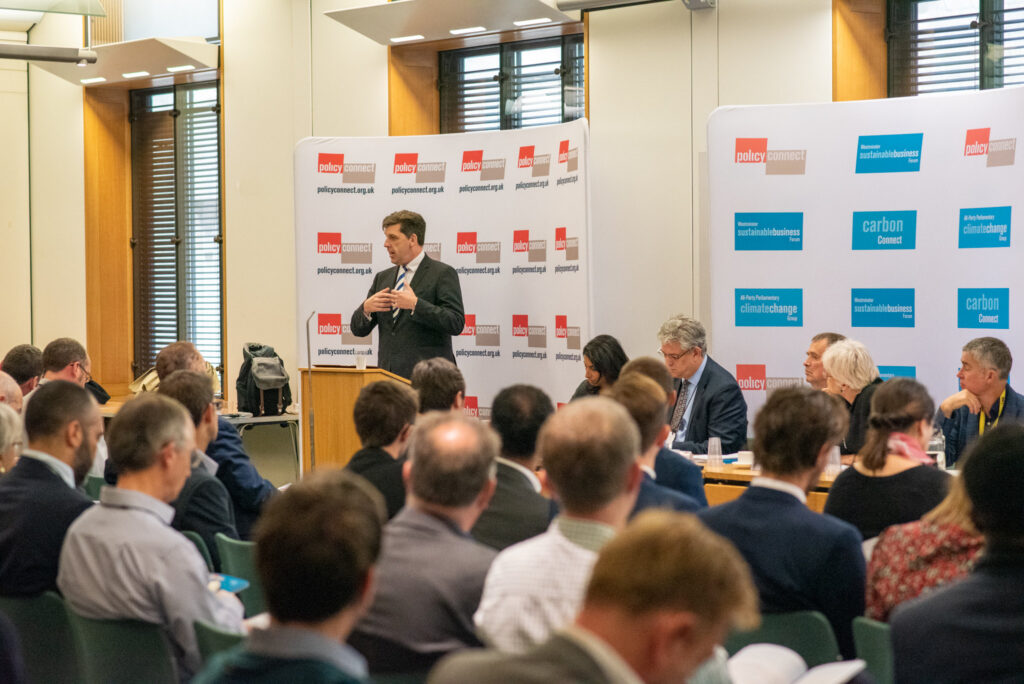The 6th carbon budget advice has arrived. The headline target of an average 78% emission reduction on 1990 levels between 2033 and 2037 is commendable. This target, coupled with the recently announced 2030 target of 68% in the UK Nationally Determined Contribution (NDC), would align the UK to a global pathway consistent with limiting warming to 1.5oC. Debates will continue about whether these figures reflect a fair share of the global carbon budget, but they are remarkable considering less than two years ago the UK was officially targeting an 80% reduction by 2050.
The CCC go over the rationale behind the 78% target in great detail and spend even longer on the necessary policy actions to make it a reality. It is a daunting task. Just listing policies required in the coming 12 months takes up almost a whole A4 page.
It is therefore surprising that the CCC chose not to change their advice on the need to re-legislate the 5th Carbon budget. They state that it is ‘for the Government to decide’ but that the ‘Committee does not consider it necessary’. The current 57% target for 2030 implied by the 5th Carbon Budget will have to be greatly overachieved to ensure the UK NDC target is met and keeping to the 6th budget is possible. The CCC argue this makes the issue of re-legislation moot.
There are three flaws with this argument. First, the 6th Carbon Budget covers the period 2033-2037 and only by the end of this period is it possible to definitively say if the Government has failed to meet its obligation. Only by 2037 would there be a prospect of any legal action being taken, with this prospect itself dictated by ongoing debates over the independence and powers of the Office of Environmental Protection. The minister, secretary of state, or even government facing the music in 2037 is unlikely to be the same as the one presiding over the period of the 5th Carbon Budget. So the costs associated with not exceeding the 5th Carbon Budget, and therefore leaving the UK off track for the 6th, will not be borne by the same individuals or government responsible for this under-achievement – violating a basic principle of governance.
This would be less of an issue if there were a legal mechanism to enforce adherence to the UK’s NDC target. Yet the Paris Agreement is largely a soft law instrument, with the achievement of NDC targets enforced through peer pressure and the risk of reputational damage. The potential for these mechanisms to enforce compliance should not be underestimated, but the UK’s track record on international soft law targets is mixed at best.
The related second issue with the CCC’s logic is that targets are not just about forcing action in Whitehall and Westminster. Targets work by setting expectations for the network of actors required to make changes for those targets to be achieved. In this case primarily the private sector. As the CCC’s report lays out in great detail, achieving the UK’s climate targets will require unprecedented changes in private investment and business practices across the economy. The Government have a major role to play in creating the necessary mood music. They can do this in three ways; setting clear long-term policies, committing public money to a particular direction of travel, and credibly committing to strong targets. As the CCC outline, the Government still has much work to do on the first of these. The Prime Minister’s 10-point plan and the announced National Infrastructure Bank go some way towards the second. What is to be gained from potentially undermining the third?
The Government are no doubt keen to nip in the bud any perception their ambitious NDC is simply for show whilst the spotlight is on the UK ahead of COP26. Such perceptions will directly influence the investment and business strategy decisions of private actors, materially impacting the UK’s chances of achieving its climate targets.
Finally, the amount of parliamentary time required to pass the secondary legislation is miniscule. There would be no need for the CCC to do additional work as the necessary analysis is contained within the NDC and 6th Carbon Budget advice. In this context, the payoff to cost ratio seems to weigh heavily in favour of putting the NDC target into law by re-legislating the 5th Carbon Budget.




